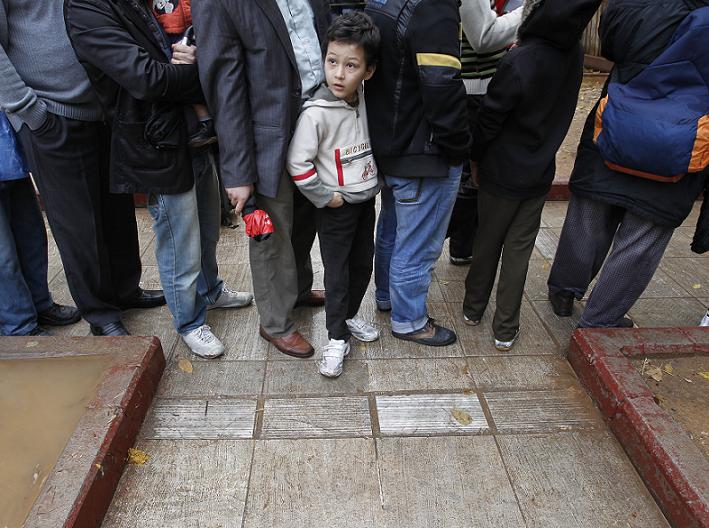Two new studies using EUROMOD published by the Policy Analysis Research Unit at Athens University of Economics and Business have found that the Greek social safety net is failing to deal effectively with the country’s ‘New Social Question’: the steep rise in the number of jobless families with children and no income support.
In Poverty in Greece: trends in 2013 Manos Matsaganis and Chrysa Leventi present updated estimates of poverty trends in 2013, as well as revised estimates for 2012.
The study uses three poverty indices:
a) the standard relative poverty rate, i.e. the proportion of population with a net income below 60% of median;
b) the fixed poverty rate, measured in terms of a poverty threshold anchored at 60% of the 2009 median in real terms;
c) the extreme poverty rate, or the proportion of population unable to purchase the cheapest basket of goods consistent with dignified living.
They estimate that the relative poverty rate has crept up by three percentage points since 2009. On the other hand, they find that as many as 41% of Greeks in 2013 were below the 2009 poverty threshold.
The study finds that 1 in 7 persons were below the extreme poverty threshold in 2013 (compared to 1 in 9 in 2012, and 1 in 45 in 2009).
The key poverty-generating mechanism is the steep rise in joblessness, combined with an ineffective social safety net. This is Greece’s ‘New Social Question’. To deal with it, a sharp shift in policy is called for: a comprehensive upgrading of income support and social services to prevent the economic crisis from mutating into a social catastrophe.
In Poverty and social policy in (a) crisis: the case of Greece Manos Matsaganis proceeds by describing the dramatic gaps in coverage left by a patchy and inadequate social safety net. The research suggests that coverage gaps preceded the crisis, but were made worse by the slow and insufficient policy reaction.
Things begin to change slowly from 2013. Specifically, the government introduced a means-tested child benefit and an unemployment benefit for the self-employed, significantly broader eligibility conditions for unemployment assistance, and a minimum income scheme to be piloted in 2014 in two local areas. A careful analysis of these measures suggests that, although welcome, they suffer from design faults and insufficient funding. The study concludes by outlining an ambitious but realistic strategy for bolstering the social safety net and upgrading basic social services in order to tackle Greece’s ‘New Social Question’.
The two studies are published as the Newsletter Series of the Policy Analysis Research Unit. The Unit is an informal group of staff and students at the Athens University of Economics and Business, co-ordinated by Manos Matsaganis. The Newsletter Series is produced by Kritiki Publishers and is supported by the EUROMODupdate2 project. For more information visit www.paru.gr or email: info@paru.gr
